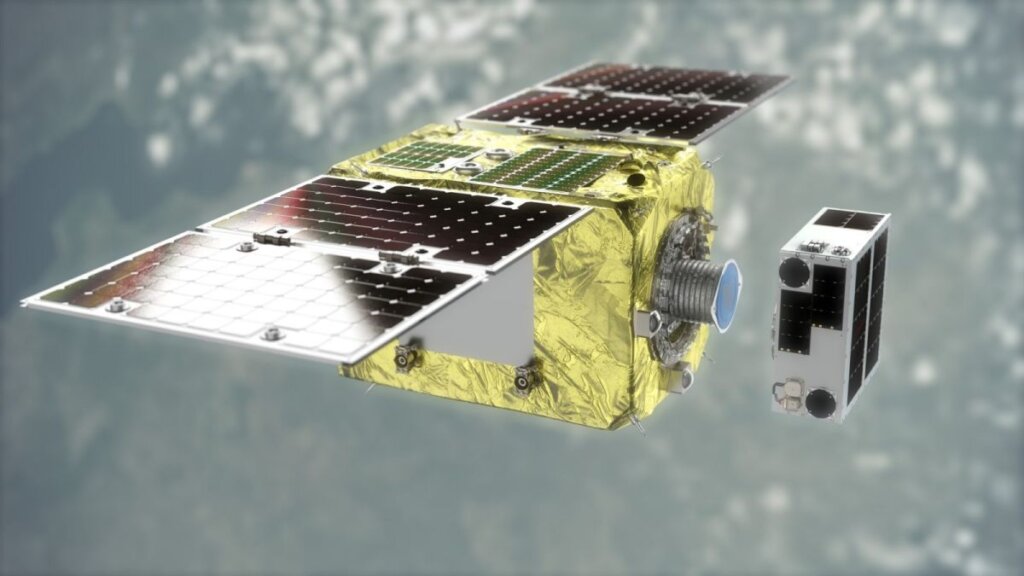A new video from Japan-based company Astroscale demonstrates a bold new proposal for cleaning up low Earth orbit (LEO).
The issue of how to mitigate and clean up space junk and orbital debris has become an increasing concern amongst spaceflight professionals and astronomers, as companies like SpaceX’s Starlink, OneWeb, Amazon Kuiper and others plan LEO satellite constellations numbering in the thousands. These satellites have fixed lifespans, and while many are designed to de-orbit themselves into a fiery death in Earth’s atmosphere, not all do so.
That’s where Astroscale plans to come in with its End of Life Services by Astroscale-Multiple (ELSA-M) vehicle, a spacecraft designed to capture and deorbit decommissioned satellites. “Space is dangerously congested,” the video states, citing over 2,200 defunct satellites and more than 630 instances of debris-generating on-orbit collisions. “We need to take action.”
Related: Astroscale to launch space-junk-removing test mission in 2024
Astroscale launched an initial flight for a previous iteration of its vehicle, ELSA-D, in 2021, and successfully demonstrated its repeated magnetic capture capability later that year. Months later, the company announced it was suspending operations of the spacecraft after detecting “anomalous spacecraft conditions.”
Astroscale’s new video depicts the newer ESLA-M’s deorbiting process. First, the spacecraft conducts a visual inspection of a rendered client satellite before performing alignment and docking maneuvers. ELSA-M then uses its thrusters to lower the client satellite’s orbit toward an atmospheric trajectory, where it safely disintegrates during reentry. With the client satellite bound on a destructive course, ESLA-M then detaches and corrects its own orbit for rendezvous with its next target.
On June 13, the company also announced the release of its Generation 2 Docking Plate, which Astroscale says has an on-orbit lifespan of over 15 years. The plate will allow de-orbiting spacecraft to more easily grab onto satellites in need of de-orbiting, offering what the company calls a “much-needed starting point for a variety of servicing options and a more responsible use of Earth’s orbital resources.”
Astroscale is funded, in part, by the U.K. Space Agency and the European Space Agency (ESA), and is striving to be the first company to demonstrate the commercial use of this multi-satellite deorbiting service. In 2021, Astroscale’s U.K. subsidiary signed a $3.2 million (£2.5 Million) deal with megaconstellation manufacturer OneWeb, which has plans to launch more than 6,000 satellites into low Earth orbit (LEO) to support its global communications service. The partnership aims to provide reliable disposal services for OneWeb as parts of its expanding LEO network age out of operation.
ESLA-M is slated for a 2024 demonstration, which will dispose of an inoperable OneWeb satellite equipped with a docking plate customized for capture by the ELSA-M grapple fixture.

